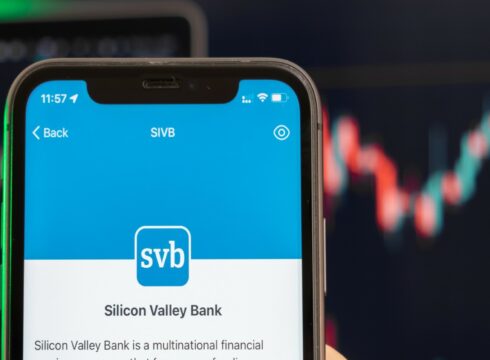Treasury Secretary Janet Yellen approved the actions of The Federal Deposit Insurance Corporation (FDIC) to protect all depositors
The depositors will have access to all their money starting Monday, March 13
This has come as a sigh of relief for several startups whose money was stuck with the bank
Inc42 Daily Brief
Stay Ahead With Daily News & Analysis on India’s Tech & Startup Economy
The US government has finally stepped in to resolve the Silicon Valley Bank fiasco. Treasury Secretary Janet Yellen, on Sunday, March 12, approved the actions of The Federal Deposit Insurance Corporation (FDIC) to protect all depositors. This has come as a sigh of relief for several startups whose money was stuck with the bank, impacting their day-to-day operations and delay in salaries for employees.
The official statement added that as with the resolution of Silicon Valley Bank, the taxpayer would bear no losses. However, shareholders and certain unsecured debtholders will not be protected.
“The depositors will have access to all their money starting Monday, March 13. No losses associated with the resolution of the Silicon Valley Bank (SVB) will be borne by the taxpayer,” said a joint statement issued by the Department of the Treasury, Federal Reserve, and FDIC.
The official statement also highlighted that the senior management has been removed. Any losses to the Deposit Insurance Fund to support uninsured depositors will be recovered by a special assessment on banks, as required by law.
Finally, the Federal Reserve Board announced it would make available additional funding to eligible depository institutions to help assure banks can meet the needs of all their depositors.
The startup industry has applauded the initiative and taken this as a crucial lesson for the future.
As LogiNext cofounder Dhruvil Sanghvi mentioned in his LinkedIn posts, “For me, the real winners are founders of the depositing companies who stayed resilient and worked their way out of this crisis caused by short and quick information/panic spread. Lesson learned for others: we are living in a fragile world. Whenever something goes wrong, do not spread fear but get to work and focus on solving it, in whatever way you can.”
Silicon Valley bank was closed on March 12 after a stock market crash by 60% followed by a bank run. The California Department of Financial Protection and Innovation, appointed the Federal Deposit Insurance Corporation (FDIC) as the receiver. The FDIC created the Deposit Insurance National Bank of Santa Clara (DINB) to protect insured depositors. At the time of closing, the FDIC, as a receiver, immediately transferred to the DINB all insured deposits of Silicon Valley Bank.
As of December 31, 2022, Silicon Valley Bank had approximately $209.0 Bn in total assets and about $175.4 Bn in total deposits. At the time of closing, the amount of deposits in excess of the insurance limits was undetermined. The amount of uninsured deposits will be determined once the FDIC obtains additional information from the bank and customers. The startups affected by the closure of the bank can file their claims at FDIC’s portal.
In the past couple of years, Silicon Valley Bank emerged famous bank among startups worldwide looking to expand to the US. It provided services such as banking solutions for private equity funds and venture capital funds, which allowed them to easily facilitate the movement of their investments in startups. Investors such as General Atlantic and Y Combinator worked with SVB.
Following the shutdown, startups across the world have been worried about their funds which are parked with the bank. As Y Combinator president and CEO Garry Tan mentioned in a series of tweets, 30% of the YC-backed startups exposed through SVB can’t make payroll in the next 30 days, which could delay salaries for thousands of startup employees across the world.
More than 125 VC firms signed a statement to limit the fallout of the bank’s collapse and avoid a possible “extinction-level event” for tech companies. OpenAI CEO Sam Altman and venture capitalist Vinod Khosla also came forward to offer personal capital to startups on the brink of SVB collapse.
Note: We at Inc42 take our ethics very seriously. More information about it can be found here.


